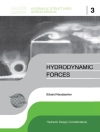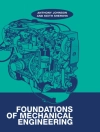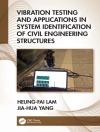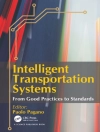This book provides selected papers presented at the 2nd International Conference on Industrial Applications of Adhesives 2022, held in Carvoeiro, Portugal, 3-4 March 2022.
The volume focuses on applications of adhesive bonding in the industry such as automotive, aeronautic, railway, marine, energy, and electronics. A wide range of topics like adhesion assessment between polymers and metals, pressure sensitive adhesives, adhesive bonding process optimization, civil applications, adhesive joints in composite materials and elastic adhesives are covered.
The book presents the latest results and innovations in this field, useful for adhesive producers and adhesive users.
Зміст
Mechanical and Cost Analysis of the Effect of the Addition of Granite Powder Waste on Selected Properties of Cement-lime Plasters.- Mechanical Performance and Economic Analysis of the Addition of Granite Powder and Fly Ash on the Subsurface Properties of Cementitious Floors Cured Under Different Conditions.- Optimization of Plasma-assisted Surface Treatment for Adhesive Bonding via Artificial Intelligence.- Hyperelastic Behaviour of Adhesives and Its Effect on Bonded Joints: An Exploratory Study.- Evaluating the Influence of Short Fiber Reinforced Thermoplastic Composites Produced by Injection Molding on the Stress Distribution in an Adhesively Bonded Joint Using a Multi-Scale Numerical Modeling Approach.
Про автора
Lucas F. M. da Silva is Full Professor at the Department of Mechanical Engineering at the Faculty of Engineering of the University of Porto (FEUP). He leads the Advanced Joining Processes Unit (AJPU) of the Institute of Science and Innovation in Mechanical Engineering and Industrial Engineering (INEGI). He is Editor-in-Chief of The Journal of Adhesion.
Robert D. Adams is Emeritus Professor of Applied Mechanics at the University of Bristol and Visiting Professor at the Universities of Oxford and Oxford Brookes. In 2011, he was awarded the R.L. Patrick Fellowship of the US Adhesion Society. He has been Joint Editor-in-Chief of the International Journal of Adhesion and Adhesives since 1999.
Klaus Dilger studied mechanical engineering with a focus on manufacturing technology at the Technical University of Munich. In 1987 hebecame a temporary academic councillor at the Chair of Joining Technology and in 1991, after receiving his doctorate, he became a senior engineer. In 1997 Prof. Dilger accepted the appointment to the endowed professorship for adhesive bonding technology at RWTH Aachen University, where he worked on the engineering design and industrial implementation of adhesive bonding technology for demanding applications, e.g. in car construction and aerospace technology. Since 2002, he is the head of the Institute for Joining and Welding Technology at the TU Braunschweig.












